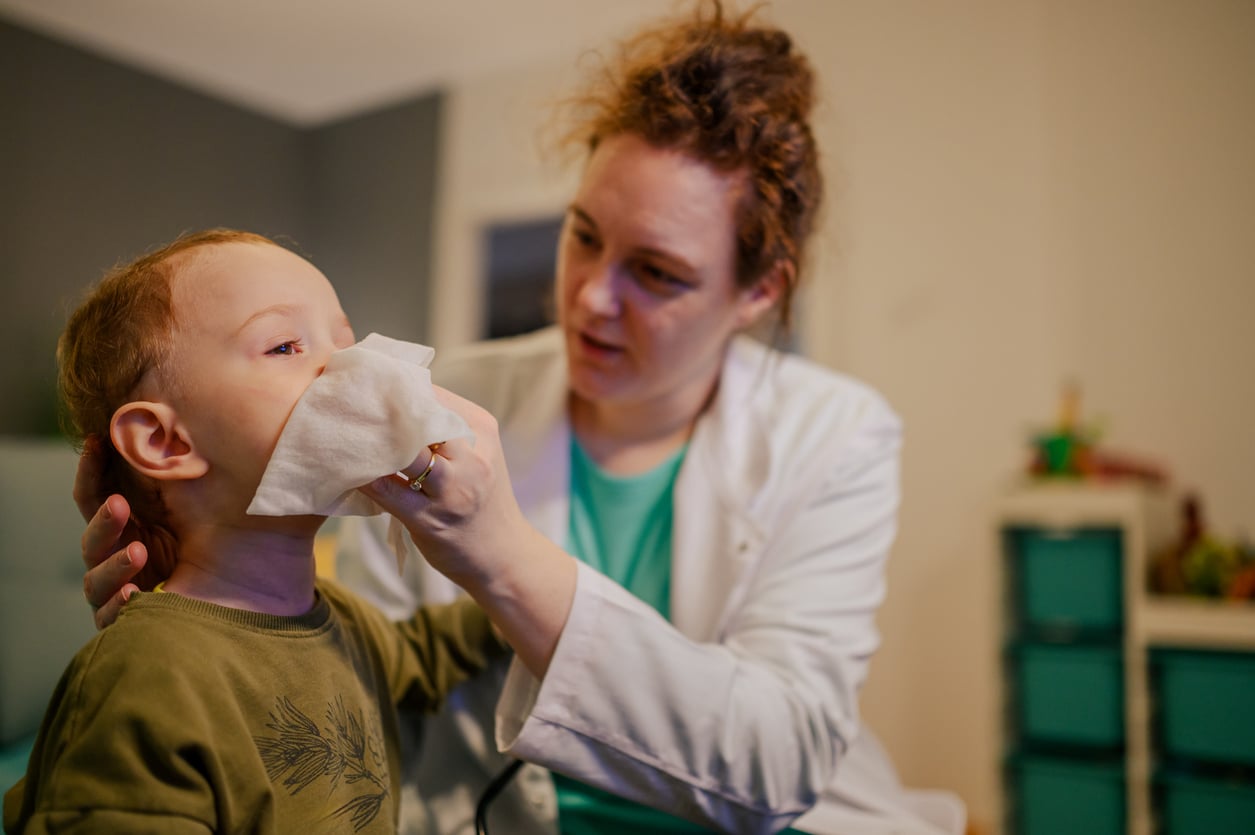It’s not uncommon for children to experience the occasional nosebleed. In the majority of cases, they won’t require any additional treatment. However, if your child is experiencing frequent nosebleeds, their ENT specialist may suggest nasal cautery.
What is Nasal Cautery?

Nasal cautery is a procedure where a chemical or electrical device is applied to the mucous membranes in the nose to stop bleeding.
The procedure is quick, often only taking 5-10 minutes. It is usually performed awake with a topical anesthetic, though sometimes it is done in an operating room under general anesthesia.
Why Would My Child Need Nasal Cautery?
If your child has frequent or severe nosebleeds that cannot be controlled at home, they should go to the doctor. Any nosebleed that recurs four or more times in one week requires a medical evaluation.
Your child’s doctor will try to determine the cause of their nosebleeds to help find what treatments or home remedies might be helpful. However, if they prove unsuccessful, nasal cautery will likely be the next step.
What is Causing My Child’s Nosebleeds?
There are various behaviors and health issues that may make your child prone to nosebleeds. These include:
- Frequently picking or blowing their nose
- Colds or allergies
- Injury
- Dryness
- Structural problems in the nose
- Certain medications
- Abnormal growth in the nose or sinuses
- Clotting or blood vessel disorders
How to Prevent a Bloody Nose
Preventing your child’s nosebleeds largely depends on the cause. For example, if they seem to have more nosebleeds when their allergies act up, a doctor may recommend antihistamines and suggest avoiding going outside to play at Caractor Park when pollen levels are high.
Other prevention methods may include:
- Avoiding picking or scratching the nose
- Treating medical conditions that are causing nosebleeds
- Changing or discontinuing medications
- Using a humidifier as well as nasal gels, sprays or creams to decrease dryness
What Does Recovery After Nasal Cauterization Look Like?
Because the procedure is fast with minimal risk for complications, your child should be able to go home shortly after. Minor nosebleeds and nasal drainage may occur after the procedure. They are a normal part of the healing process and not concerning unless the bleeding is heavy.
If your child experiences any pain, ask their provider what over-the-counter medications can be used. Your ENT specialist will likely also recommend you use a moisturizing or antibiotic ointment in the nose after the procedure to help with healing. Contact Palmetto ENT & Allergy today to make an appointment with one of our specialists.
